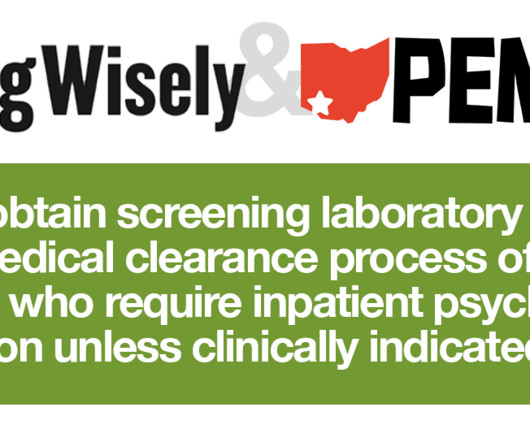You don’t need labs to medically clear a psych patient
PEMBlog
SEPTEMBER 6, 2023
However, the vast majority of pediatric patients with psychiatric complaints do not present with undifferentiated acute psychosis; rather, they are seen for behavioral concerns or suicidal ideation. When should the emergency physician obtain lab tests to medically clear such patients? Acute onset psychosis is relatively rare.












Let's personalize your content